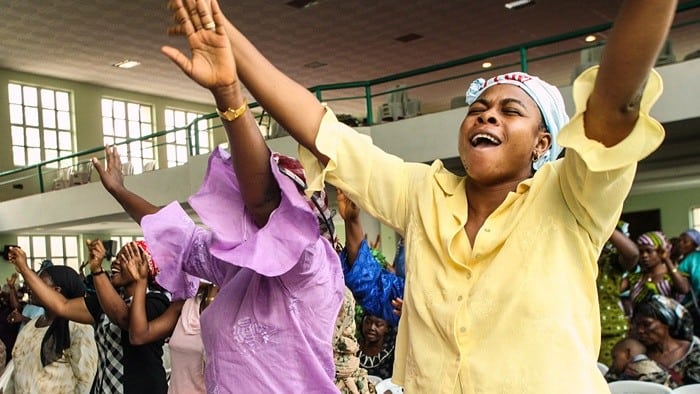“I will never forgive my husband,” Ekua* yelled as she jumped out of her seat, startling many of the women sitting around her. It was the first day of a large “Walking With Jesus” event, with 300 of the nation’s top female military leaders in attendance. All eyes were on Ekua as she sat down again in her seat, breathless.
While very successful in the workplace, Ekua faced problems at home. Her husband had abandoned her and their children. The burden of being the sole caregiver for their children and household weighed heavily on her.
I am struck by Ekua’s story because of how raw it is. She has a passionate reaction to Jesus’ message of forgiveness and has no problem letting everyone around her know it.
Many times in church or Bible studies or home fellowships, I respond with indifference to the radical way Jesus is calling me to live. I hear the words of Scripture, but I don’t change the way I’m living.
But when the gospel pierces places in the world where Christian values aren’t commonplace, the result is often powerful and conspicuous.
In West Africa where Ekua lives, unforgiveness among believers is a major problem. Many Christians have strained relationships in their homes, towns and workplaces. By using small group studies for “Walking With Jesus” and “Magdalena: Released From Shame,” the Jesus Film staff in Ekua’s region ministers to influential groups that can have a big impact in their communities: the police and the military.
Even When It’s Hard
Ekua’s story continues:
The next day Ekua and the rest of the women viewed the second episode of “Walking With Jesus.” In the film, the village chief realizes he wronged many people in his life and decides to make his relationships right-because Jesus calls His followers to do so.
The team member leading the event challenged the women in attendance to resolve any disunity in their lives. “Whoever has sinned against you, forgive them,” he said.
Ekua began to cry. After praying, she ran out of the large conference room to phone her husband, Kayode. “I’ve just called you to let you know I have forgiven you, and I want you to know I love you,” she said.
Kayode shouted cheerfully on the other end of the line. Within minutes, Kayode’s heart had softened, and for the very first time, he transferred money to help his estranged wife and their children. When Ekua returned to the conference, all eyes fixed on her once again. But this time, it wasn’t an eruption of anger that drew their attention. Instead, it was a thankful woman dancing around in joy.
Isn’t that beautiful? I want to be known as “a thankful woman dancing around in joy,” don’t you?
Something tells me, if I want to have Ekua’s kind of joy in my life, I need to have Ekua’s kind of obedience in my life. I need to be willing to take Jesus at His word when He tells me to forgive those who have wronged and hurt me.
Sounds so simple, and yet feels so hard.
Where Joy Is Found
But I want the freedom that comes from being in right relationship with those around me. I want that joy. I want it more than I want to hold onto my pain. Forgiveness is the path and Jesus is my model and mentor. While He was hanging on a Roman cross, an innocent man suffering an unjust death sentence, Jesus said,
“Father, forgive them for they do not know what they are doing” (Luke 23:34 NIV).
That’s radical. It’s bold and unashamed. If Jesus can forgive His tormentors in the middle of His humiliation and pain, I can let Him show me how to forgive those who have offended me. He’s forgiven me. Who am I to withhold it from others?
I’m willing to follow His lead and walk in forgiveness like Ekua did. Are you?
Watch “Walking With Jesus” or work through the “Magdalena: Released From Shame” Bible study, “Reflections of Hope,” to help you explore this concept further. Why not use these materials in your small group at church and see what the Lord does?
*Names have been changed for the security of the individual.
